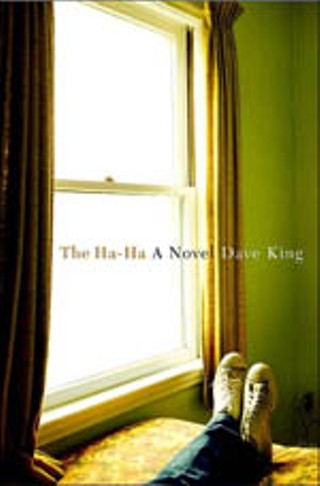Book Review: Readings
Dave King
Reviewed by Marrit Ingman, Fri., Feb. 4, 2005

The Ha-Ha
by Dave King
Little, Brown and Company, 340 pp., $23.95
Howard Kapostash can't speak or write, but the narrator of Dave King's novel – a Vietnam veteran silenced by a head injury 30 years ago – is a man of insight and feeling. When his high school sweetheart, Sylvia, enters rehab for her coke addiction, she sends her 9-year-old son, Ryan, to stay with Howard in his childhood home, which he now shares with three roommates. Generations collide, and Howard begins to take small steps out of his abyss. King's seemingly effortless prose is true to the perspective of his protagonist, saying less than it reveals: through memories of his parents, through observations of his broadening world, through his dreams of reconciliation with Sylvia, through the weightless feeling he seeks when mowing along the precipitous hidden ditch (the titular "ha-ha," in gardening parlance) on the grounds of the convent where he works. The sudden drop transports Howard back to his life's "most ethereal moments" – flying through the warm tropical air, surrounded by dust and "bits of life" kicked up by a land mine, before crash-landing into silence. The Ha-Ha is not a feel-good story of recovery – neither Howard's nor Sylvia's, nor theirs together – but its pleasures reside in the small moments of redemption and connection, fragile as stems. There is a heartbreaking twist to the tale, one that registers so deeply not because it is unexpected but because King's compassion for his characters is so plainly evident. Even Howard's shiftless twentysomething roommates (whom he initially dubs "Nit" and "Nat" because they are so indistinguishable and unimportant in his world) are humanized through the storytelling; caricatures of youthful felicity and good fortune squandered in slackerdom, they gradually come into focus as equally subject to the cosmic vagaries of life and death, strength and infirmity, opportunity and impossibility. The Ha-Ha is an infinitely wise story of what people do with tragedy, deliberately choosing between oblivion and engagement with others. Turn to the acknowledgments and be stunned by the author's boyishly effusive praise for his professors, thesis readers, and writing group, for every other word of the book belies its debut status.










